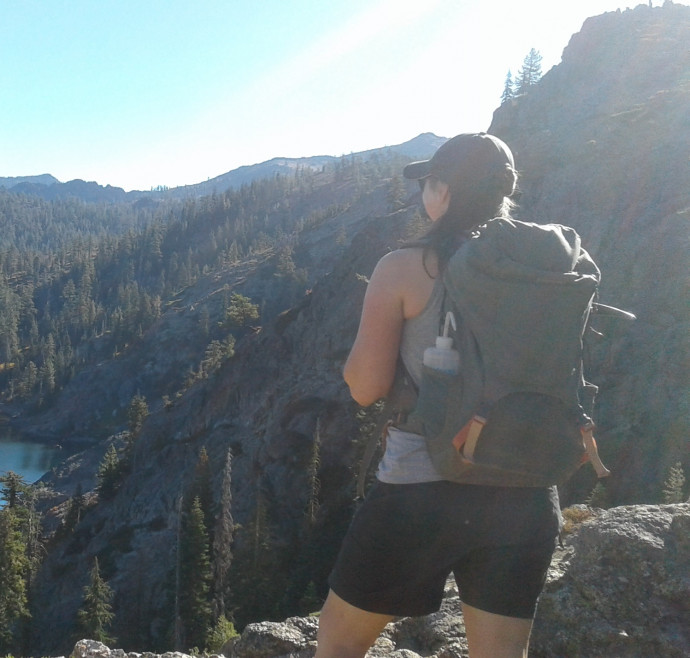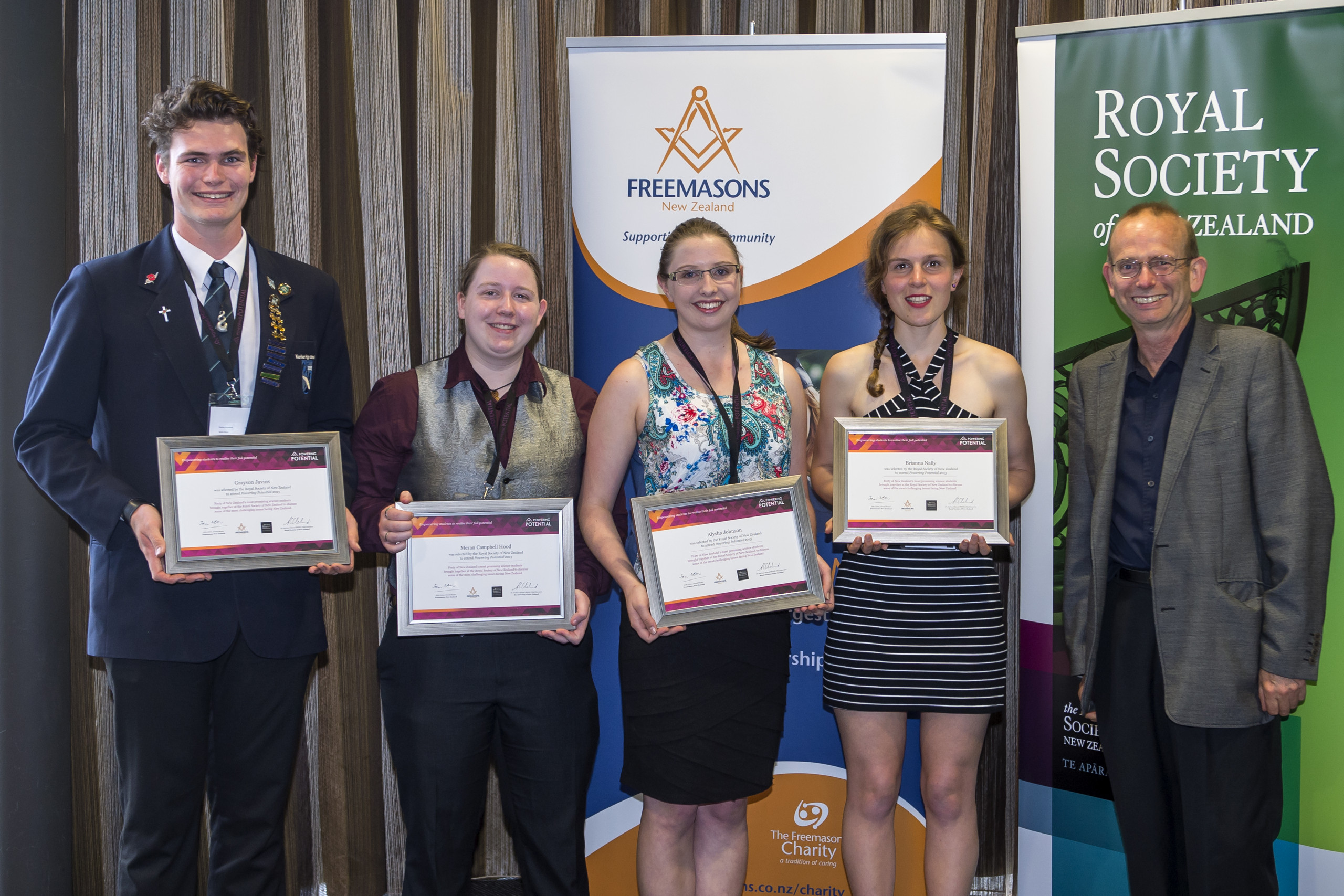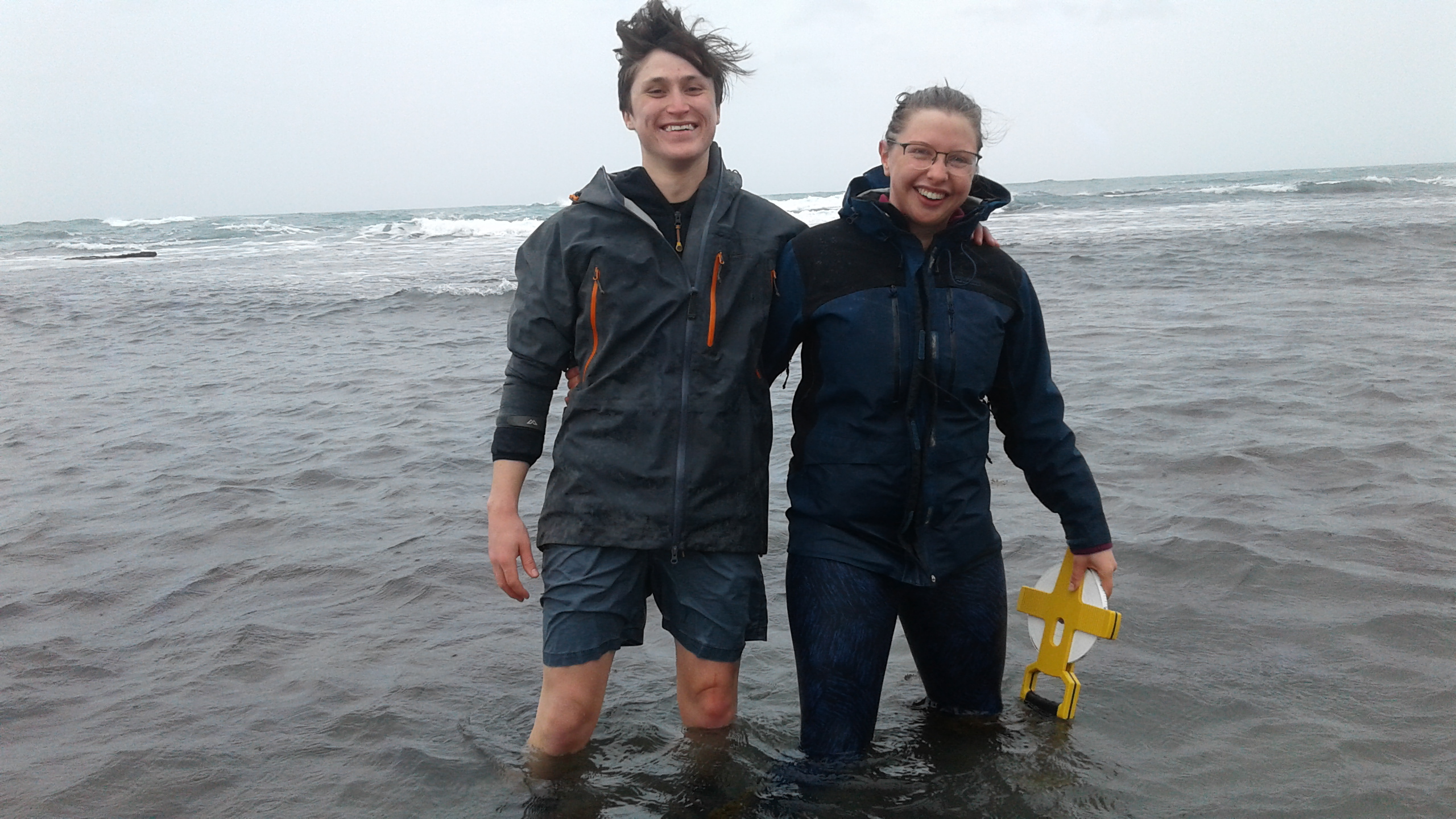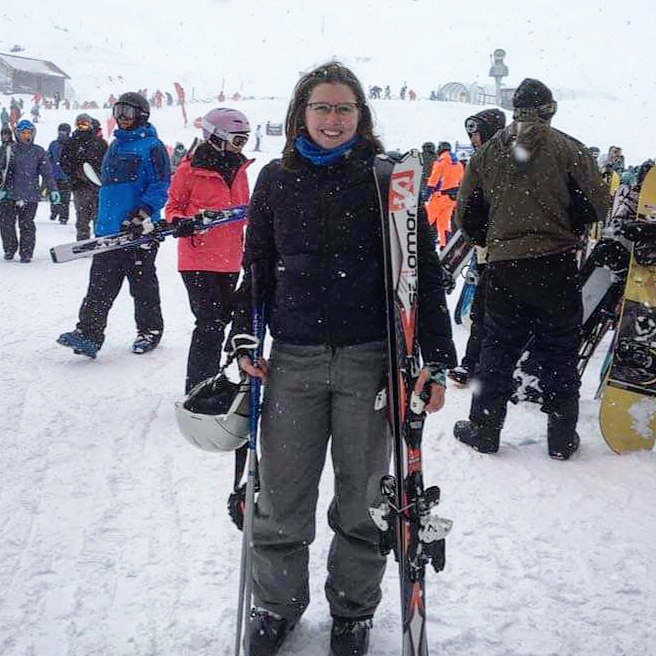Alysha Johnson

Alysha first became acquainted with Royal Society Te Apārangi in 2015 when she was selected to represent New Zealand in Russia at the International Geography Olympiad. She now has plans to commence her PhD study in July at Australia's University of Wollongong.
I grew up in Waitakere, Auckland with a family of geologists. As a result, much of my childhood was spent outside developing an interest in the natural world.
Whilst I was attending Avondale College in 2014, I entered a competition to represent New Zealand in the International Geography Olympiad. I was selected and was lucky enough to travel to Tver, Russia in 2015 to represent New Zealand. This is where I first became involved with Royal Society Te Apārangi. Our team in Russia came 14th overall and I came away with new networks, ideas about the world and new amazing experiences.
Further, in 2015 I was selected to attend Powering Potential which was organised by Royal Society Te Apārangi. Here we were presented with complex scientific problems and had to do our best in two days to formulate solutions.
The outcome of these two experiences was I learnt that I loved science, I loved being around and having discussions with other scientific people and that this is what I wanted to keep doing.

Alysha third from the left at Powering Potential
Moving into university I started studying at the University of Auckland for a Bachelor of Science double majoring in Environmental Science and Geography. However, not long into my first semester, I realised that Environmental Science didn't quite do it for me, so I changed my first major into Earth Science (Geology), following in my parents' footsteps. What I love about geology is it a great detective game, where the crime is a landslide, a natural disaster, a fossil, and the clues are the world around us! For us to make construction decisions, predict the weather or manage sea level rise, we need to understand what has happened to the world in the past, and how this is going to affect the future. Geologists and geographers learn how to read the landscape, sediment deposits or even mineral structure to unravel these mysteries.

Undergraduate field work
By my third year I discovered my main interests were igneous geochemistry (studying past volcanic eruptions, partially at a geochemical scale), and coastal erosion (understanding how the relationship between wave action, sediment supply and coastal shape can cause a coast to retreat or build up).
After completing my undergraduate degree, I continued down the geochemical path and focused my Honours year studying water content in ultramafic rocks. Ultramafic rocks are often used as a proxy of the mantle, and water is known to instigate volcanic eruptions. So by understanding how water content changes in ultramafic rock, we may be able to apply this to the centre of the earth and model volcanic and seismic behaviour. For this, I was very lucky to travel to Trinity National Park California to take samples and then later to Arizona State University in Phoenix to use a Secondary Ion Mass Spectrometer (SIMS) to complete my lab work. My Honours year pushed me way out of my comfort zone, completing a project in which I would not have dreamed of the year before, and teaching me hard, but valuable scientific skills.
Upon the conclusion of my Honours year, I secured a scholarship with the University of Wollongong in Australia where I will commence a PhD in July 2020. I hope to focus on coastal erosion of volcanic islands in the Pacific. Coastal erosion is going to be of increasing importance to New Zealand and the Pacific in the coming decades. Climate change and sea-level rise will alter coastal equilibrium conditions throughout New Zealand, which means that coastlines that may never have eroded before, may start to. As a nation with a huge volume of infrastructure along the coast, erosion will become a pressing concern. Further, many Pacific Islands do not have the resources to manage and mitigate erosion, making these nations extremely vulnerable. I hope to combine the geochemical skill sets I gained in my Honours year with my interest in coastal erosion to be able to quantify and understand erosion and evolution on volcanic islands and apply this to islands throughout the Pacific. I suspect as I commence my studies my project will develop and change, watch this space!
Undertaking New Zealand field work
I am currently employed by the University of Auckland as a research assistant working with part of a project to compile a nationwide data set of New Zealand coastlines going back to the 1930s as well as tutoring third-year classes. Teaching has become a passion of mine which I never expected. I love being asked questions which make me mould and explain concepts in new ways so that people can understand them better.
Outside of university, my hobbies include Ballroom and Latin dance, which I both teach and compete in. In 2018 my dance partner and I came 4th and 7th in Ballroom and Latin respectfully in the New Zealand Dancesport Championships. Again, teaching is a highlight. In 2019 I was teaching 4 classes a week from Beginner to Advanced, learning different ways to explain how to move your body. I hope to continue both training and teaching upon moving to Australia.
I am a huge fan of the outdoors and travel! In 2018 I completed the Outward Bound course at Anakiwa and have spent many university breaks abroad in Europe and Asia. I enjoy spending my evenings and weekends kayaking, doing yoga or disappearing on a hike. I like to ski and I can play the guitar, but I would not say that was a strength of mine.

I love to ski!
A lot of uncertainties lie ahead. With the disruption of COVID-19, I am not yet sure when I will be able to get to Australia or be able to do fieldwork. However, through the opportunities provided by Royal Society Te Apārangi, as well as those that I have sought out myself, I have learnt that science will keep pushing itself. I will keep pushing myself and hope to make a difference to the future of New Zealand and the Pacific.
